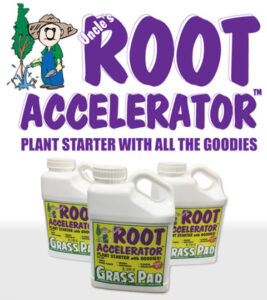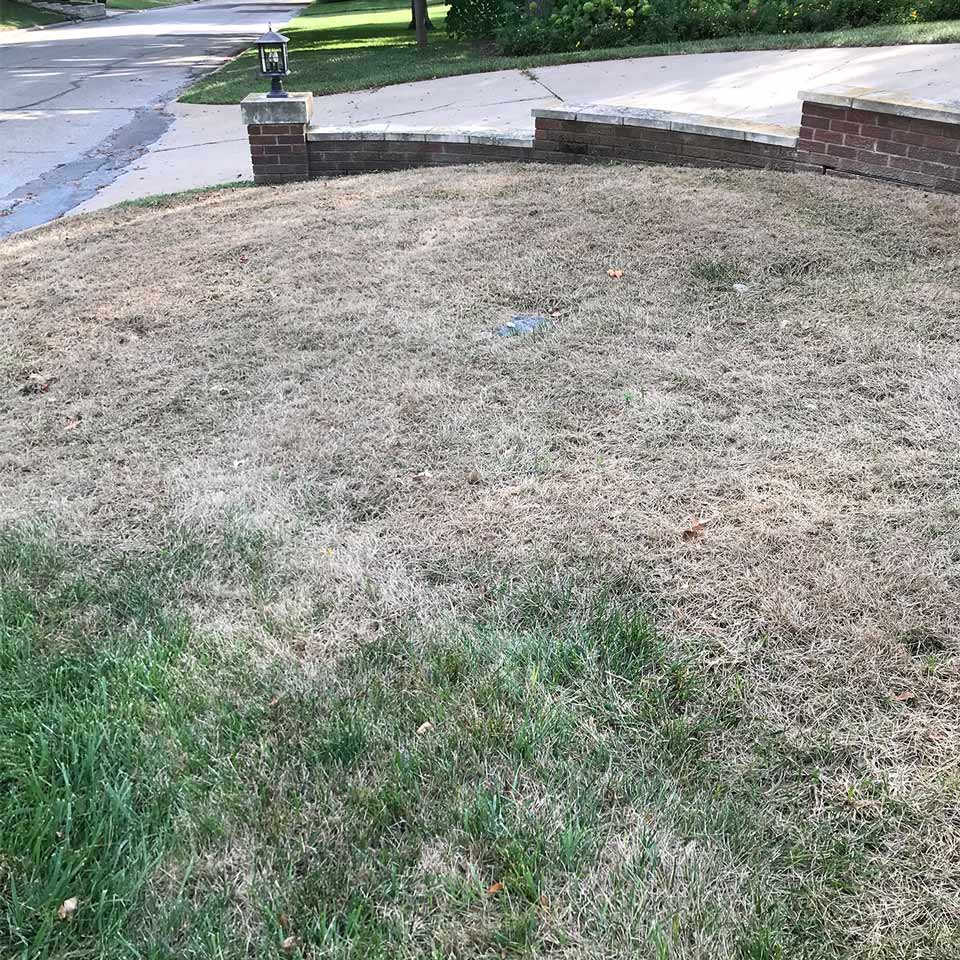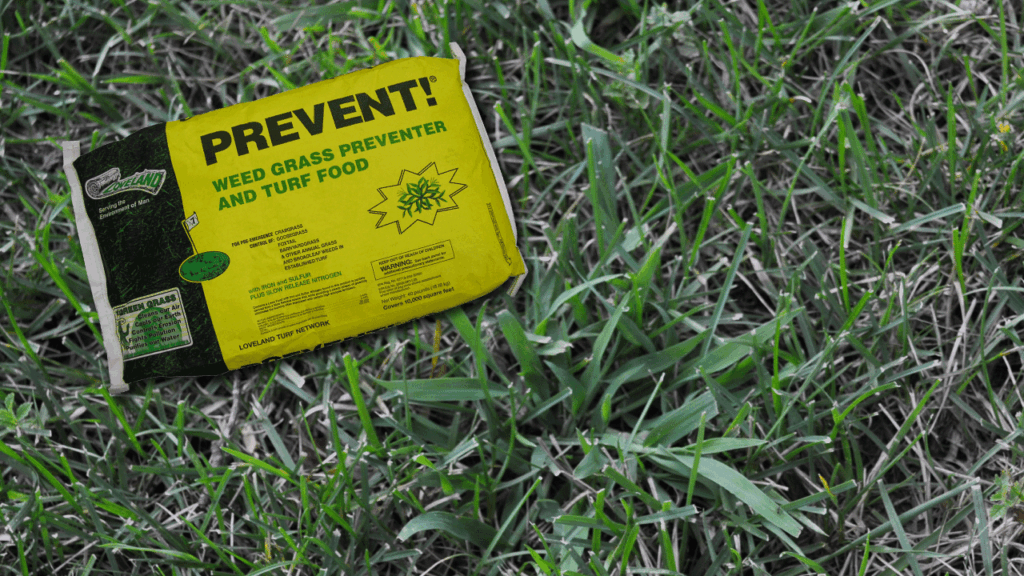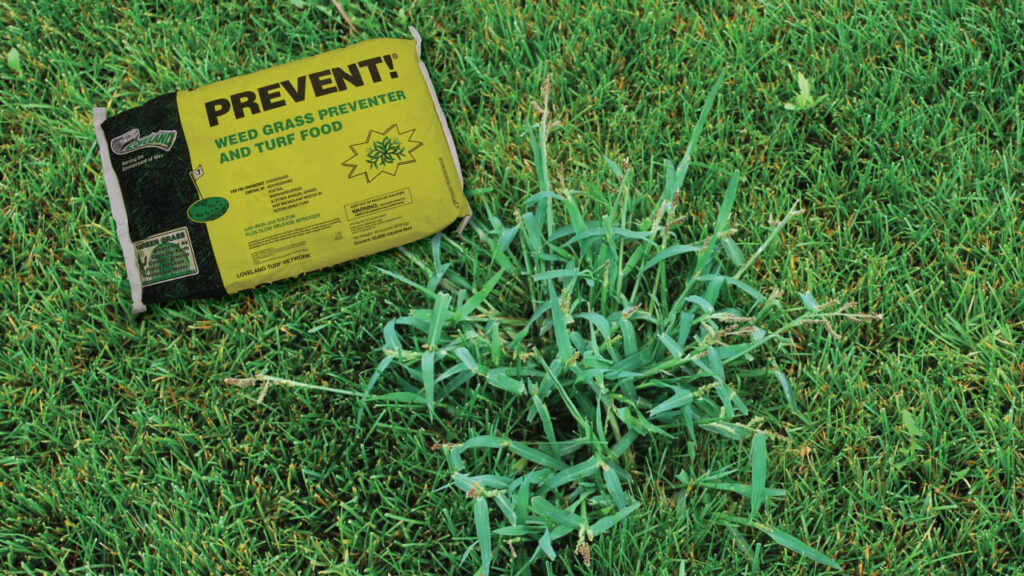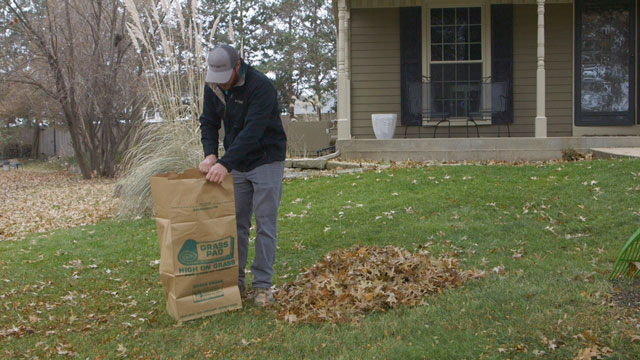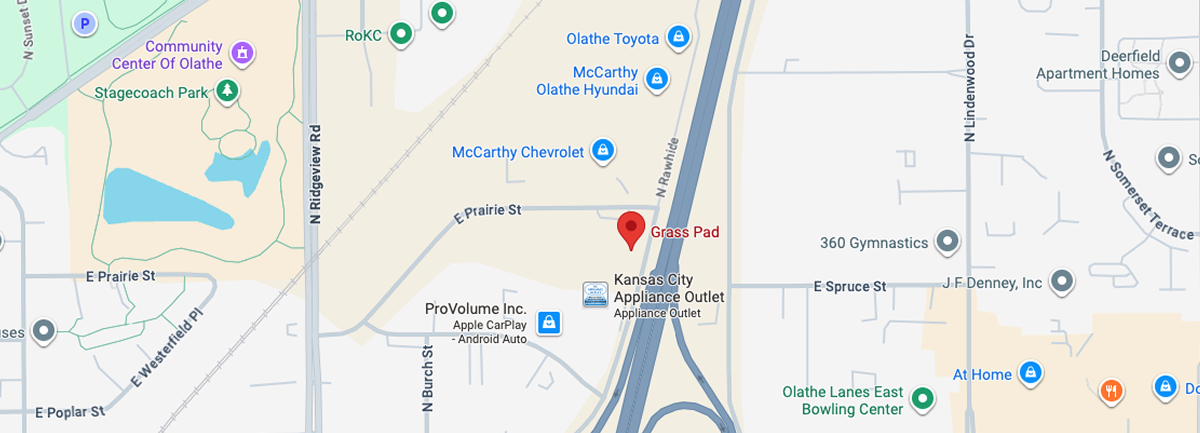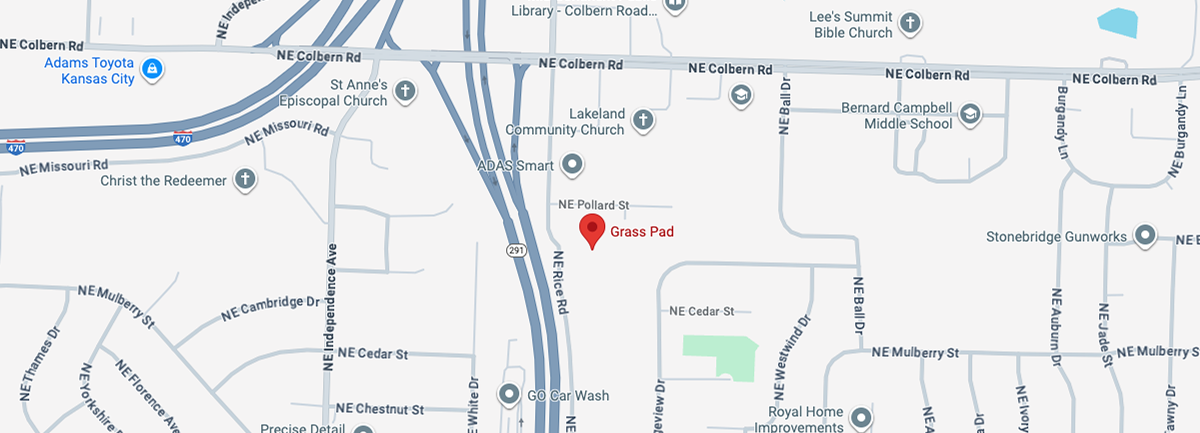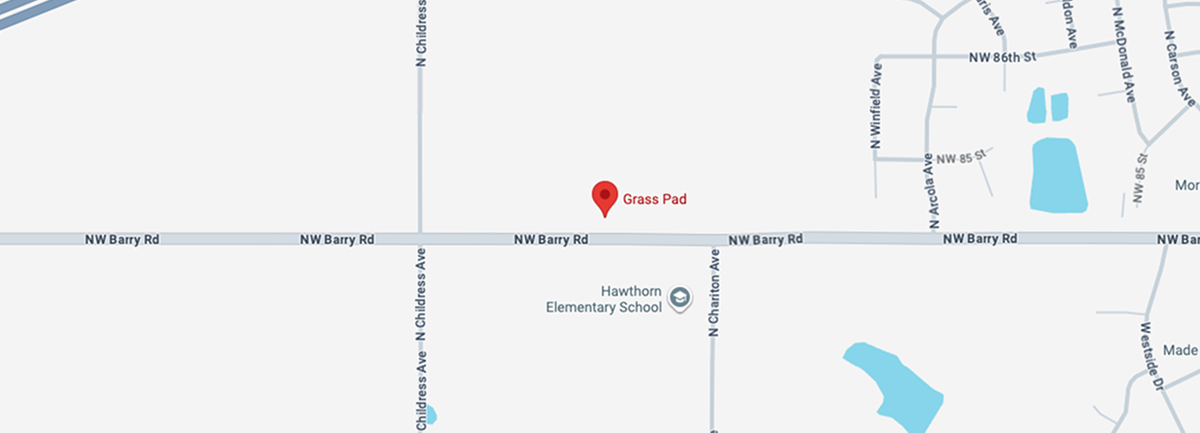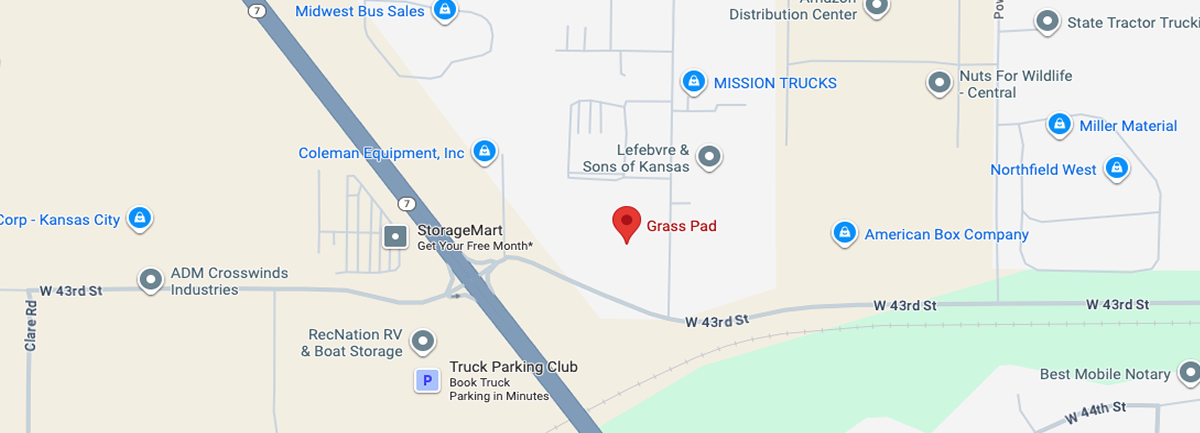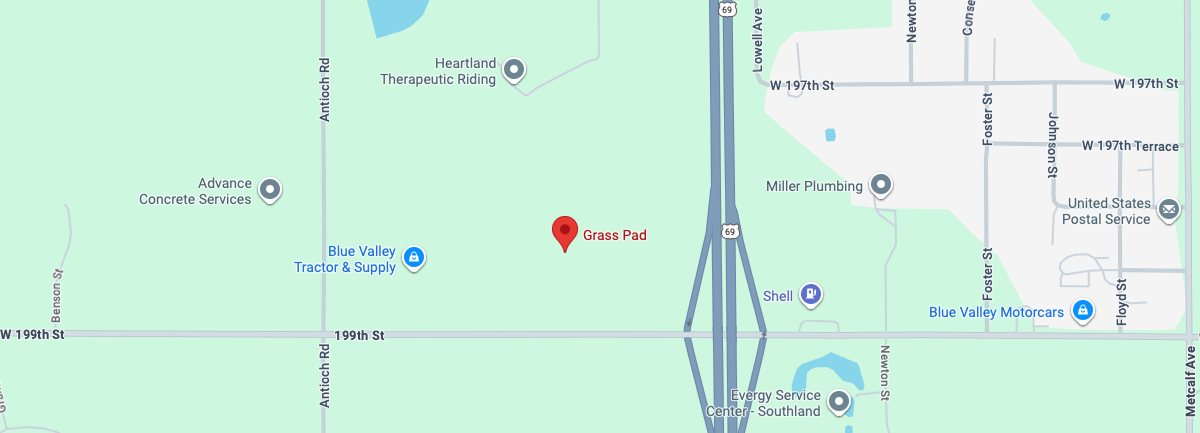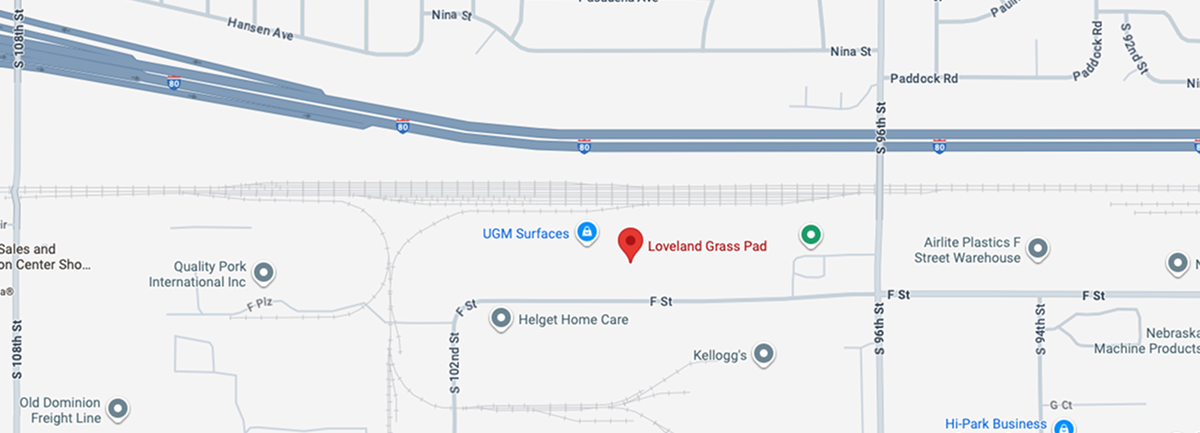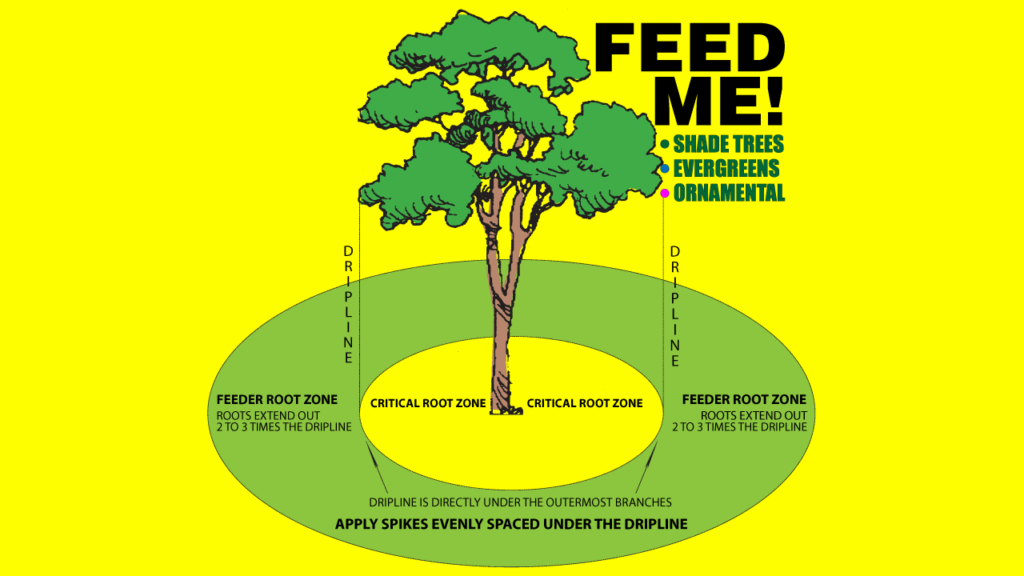
Feed Trees and Shrubs
Fertilizing trees and shrubs is a necessity, and that includes fruit trees. One of the most significant benefits of fertilizing trees is the preventative maintenance they provide. Landscape shrubs and trees require sufficient energy stores to remain healthy to survive insect and environmental stress. Trees and shrubs are a valuable part of your property, and it is essential to protect your investment. Established trees and shrubs can be easily fed by homeowners using tree food spikes or granular tree food applications. For best results, provide your trees twice yearly, once in early spring and once mid-fall.
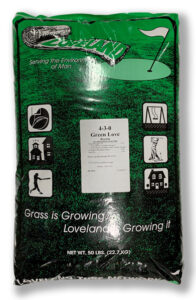
Granular Application Tree Food
Uncle’s Green Love is specifically suitable for trees such as oak that thrive with iron in their diet. Spread granulated tree food over the feeder root zone using a push or hand spreader, or use an auger to drill holes and fill. Green Love is a non-burning bio-solid fertilizer that slowly releases nutrients to feed trees and shrubs for up to ten weeks. Green Love contains a low nitrogen, slow-release fertilizer formula to enhance root establishment, disease resistance, and plant vigor. Use five pounds of Green Love per inch of trunk diameter for established trees.
Also available is Uncle’s Tree Food, a multi-purpose granule tree food. Uncle’s Tree Food is formulated to feed ornamental trees, shrubs, and large shade trees.
How to Fertilize Newly Planted Trees and Shrubs
If you are planting new landscapes, avoid using fertilizer spikes until the plant has been established for at least one year. New plantings require a unique fertilizer formulation to accelerate root development. Uncle’s Root Accelerator is intended for new plantings and is recommended for all trees and shrubs at installation. Applied once per month for the first year, Root Accelerator will ensure transplanting success. Uncle’s Root Accelerator is a liquid-concentrated plant starter fertilizer mixed with water and then poured around the tree’s base or shrub. The liquid is immediately available to the plant, encouraging healthy root growth.
See Related: Transplanting New Trees and Shrubs
